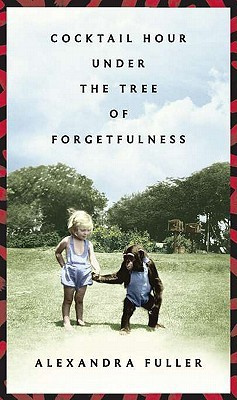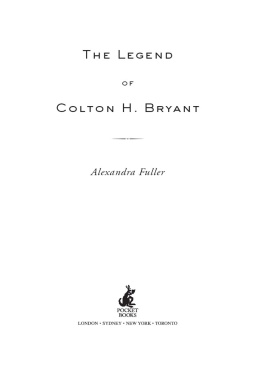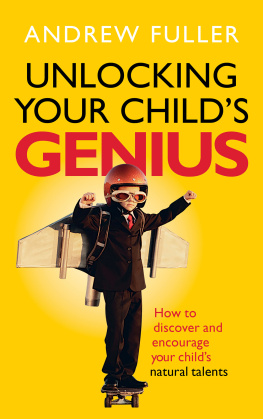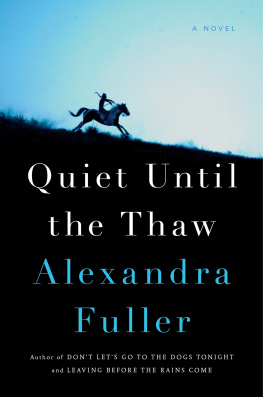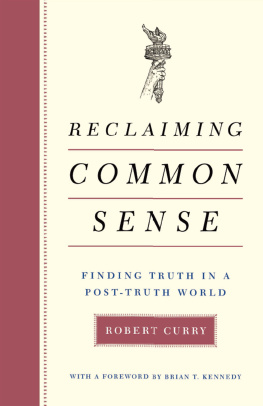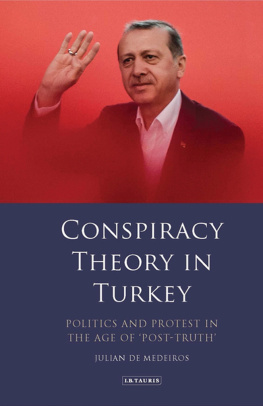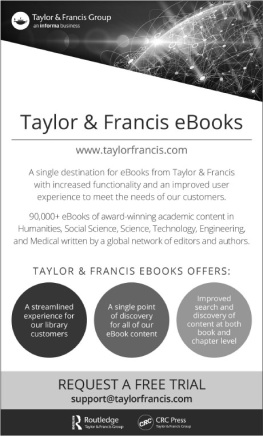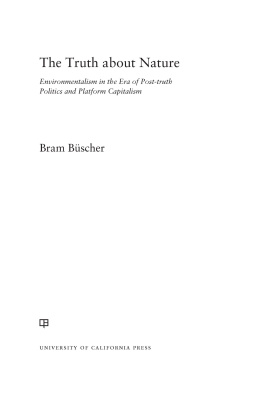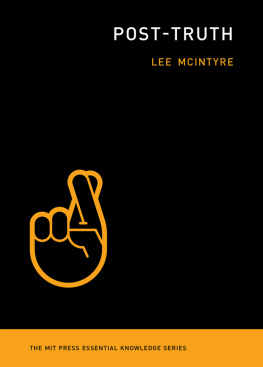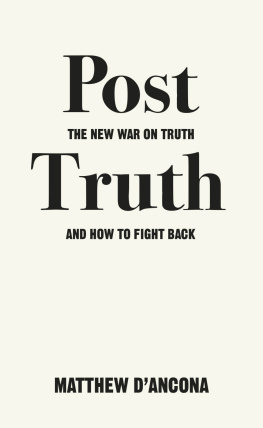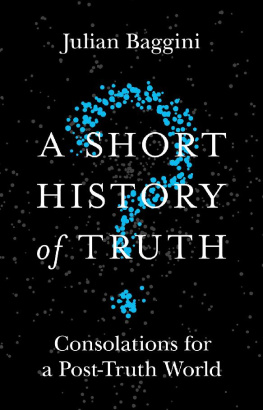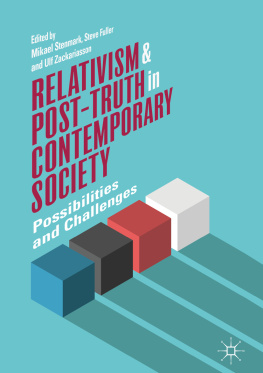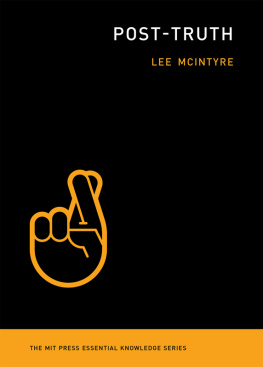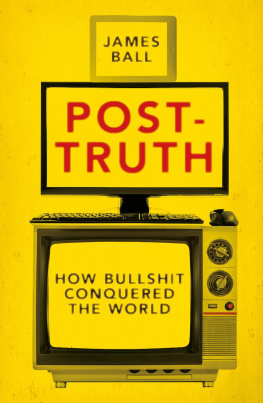Post-Truth
KEY ISSUES IN MODERN SOCIOLOGY
Anthems Key Issues in Modern Sociology series publishes scholarly texts by leading social theorists that give an accessible exposition of the major structural changes in modern societies. These volumes address an academic audience through their relevance and scholarly quality, and connect sociological thought to public issues. The series covers both substantive and theoretical topics, as well as addresses the works of major modern sociologists. The series emphasis is on modern developments in sociology with relevance to contemporary issues such as globalization, warfare, citizenship, human rights, environmental crises, demographic change, religion, postsecularism and civil conflict.
Series Editor
Peter Kivisto Augustana College, USA
Editorial Board
Harry F. Dahms University of Tennessee at Knoxville, USA
Thomas Faist Bielefeld University, Germany
Anne Rawls Bentley University, USA
Giuseppe Sciortino University of Trento, Italy
Sirpa Wrende University of Helsinki, Finland
Richard York University of Oregon, USA
Post-Truth
Knowledge as a Power Game
Steve Fuller

Anthem Press
An imprint of Wimbledon Publishing Company
www.anthempress.com
This edition first published in UK and USA 2018
by ANTHEM PRESS
7576 Blackfriars Road, London SE1 8HA, UK
or PO Box 9779, London SW19 7ZG, UK
and
244 Madison Ave #116, New York, NY 10016, USA
Copyright Steve Fuller 2018
The author asserts the moral right to be identified as the author of this work.
All rights reserved. Without limiting the rights under copyright reserved above,
no part of this publication may be reproduced, stored or introduced into
a retrieval system, or transmitted, in any form or by any means
(electronic, mechanical, photocopying, recording or otherwise),
without the prior written permission of both the copyright
owner and the above publisher of this book.
British Library Cataloguing-in-Publication Data
A catalogue record for this book is available from the British Library.
ISBN-13: 978-1-78308-693-1 (Hbk)
ISBN-10: 1-78308-693-9 (Hbk)
ISBN-13: 978-1-78308-694-8 (Pbk)
ISBN-10: 1-78308-694-7 (Pbk)
This title is also available as an e-book.
This book is dedicated to the memory of the founder of scientific history, the ancient Greek historian Thucydides, who by todays standards would be regarded as a purveyor of fake news.
CONTENTS
Among the people (aside from the publisher!) who had to suffer graciously while I stretched their patience as I wrote various texts that provide components of the argument in these pages, let me single out for special thanks: James Chase, Jim Collier, Alistair Duff, Joannah Duncan, Bob Frodeman, Inanna Hamati-Ataya, Jerry Hauser, Ilya Kasavin, Sharon Rider, Mikael Stenmark and Jack Stilgoe. I would also like to thank the British Sociological Association, the European Association for the Study of Science and Technology, the Guardian newspaper and Londons Institute of Art and Ideas for hosting earlier versions of what I say here on their websites. Finally, I would like to acknowledge support of the Russian Science Foundation, project number 14-18-02227, Social Philosophy of Science, with which I am associated as a research fellow in the Russian Academy of Sciences, Institute of Philosophy.
Post-truth may have been declared word of the year for 2016 by the Oxford English Dictionary, but the concept has been always with us in both politics and science and in much deeper ways than those who decry its existence realize. A long memory is not required to see its roots in politics. Recall 2004s coinage of reality-based community as an ironic counterpoint to George W. Bushs approach to foreign policy, especially after the start of the Iraq war. Nevertheless, it is interesting to see the exact dictionary definition of post-truth, including examples of usage:
Relating to or denoting circumstances in which objective facts are less influential in shaping public opinion than appeals to emotion and personal belief:
in this era of post-truth politics, its easy to cherry-pick data and come to whatever conclusion you desire
some commentators have observed that we are living in a post-truth age
This definition is clearly pejorative. Indeed, it is a post-truth definition of post-truth. It is how those dominant in the relevant knowledge-and-power game want their opponents to be seen. In this context, the word emotion is a bit of post-truth jargon that only serves to obscure the words true function, which is to gain competitive advantage in some more or less well-defined field of play.
Those who are most resonant to our living in a post-truth world believe that reality is fundamentally different from what most people think. This applies to both sides of todays post-truth divide: the elite experts and the populist demagogues. Informing it all is Platos view of the world, which Niccol Machiavelli helpfully democratized in the Renaissance. It was then updated for the capitalist world by the political economist Vilfredo Pareto (18481923), one of sociologys forgotten founders, an inspiration to Benito Mussolini and the man who was still cast in my youth as the Marx of the Master Class, given his respectful treatment by such Cold War liberals as Talcott Parsons and Raymond Aron (Parsons 1937: chaps. 57; Aron 1967: chap. 2). If anyone deserves to be the patron saint of post-truth, it is Pareto.
For Pareto, what passes for social order is the result of the interplay of two sorts of elites, which he called, following Machiavelli, lions and foxes. Both species are post-truth merchants. The lions treat the status quos understanding of the past as a reliable basis for moving into the future, whereas the foxes regard the status quo as possessing a corrupt understanding of the past that inhibits movement into a still better future. History consists in the endless circulation of these two temporal orientations: the inductive and the counter-inductive, as epistemologists would say.
The Oxford English Dictionarys definition of post-truth speaks the lions truth, which tries to create as much moral and epistemic distance as possible from whatever facsimile of the truth the fox might be peddling. Thus, the fox but not the lion is portrayed as distorting the facts and appealing to emotion. Yet, the lions truth appears to the fox as simplistically straightforward and heavy-handed, little more than claims to entitlement often delivered in a fit of righteous indignation. Thus, the foxs strategy is to minimize the moral and epistemic distance between his own position and that of his leonine opponent, typically by revealing her unredeemed promises and rank hypocrisy.
Post-truth politics was laid bare in the 2016 US presidential campaign when the leonine Hillary Clinton, perhaps the most qualified person ever to run for the presidency, called half of Donald Trumps supporters a basket of deplorables for trying to undermine the dominant progressive agenda of the post-Cold War neo-liberal welfare state. In response, the foxy Trump, speaking on behalf of the Americans increasingly left behind by this same agenda, called the people fronting it corrupt and crooked.
But Trump meant something deeper, which goes to the heart of the post-truth condition. It came across in his campaign catchphrase: draining the swamp. The entire Washington establishment not only Clintons Democrats but also the opposing Republican Party who nominated Trump as their candidate was blamed for having staged a rigged game in which whoever was elected, the ensuing legislation would always benefit the political class, regardless of its consequences for the populace. In more leonine days, this was called bipartisanship and it got the business of government done. Indeed, its sociological defenders had been trailing it as the end of ideology for at least two generations (Bell 1960). It was supposed to be the game that beats all games. But Trump successfully showed that it was still just one more game. Thats the post-truth condition in a nutshell.



